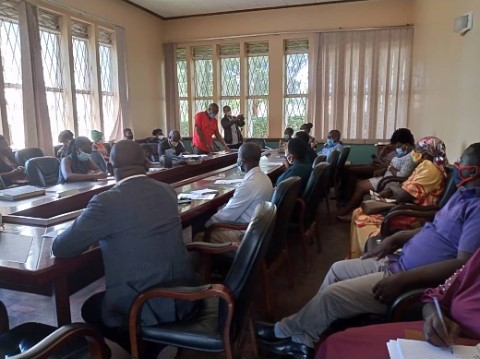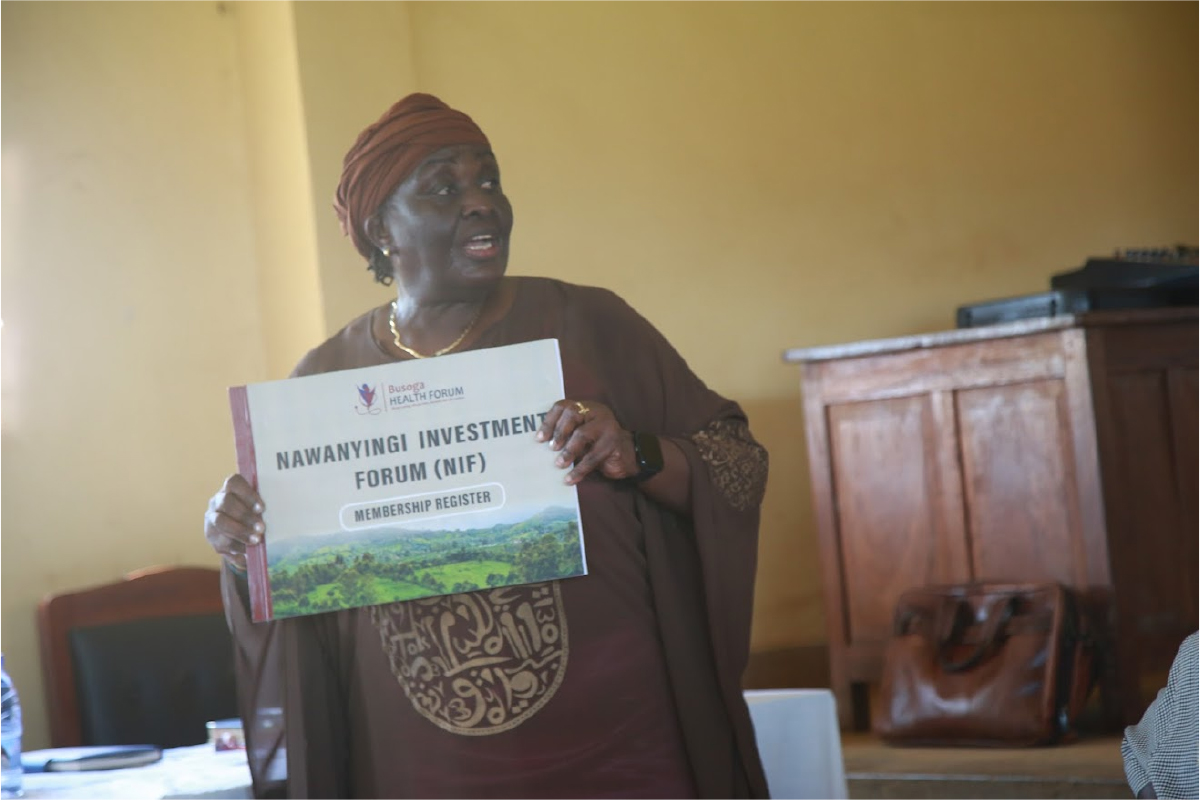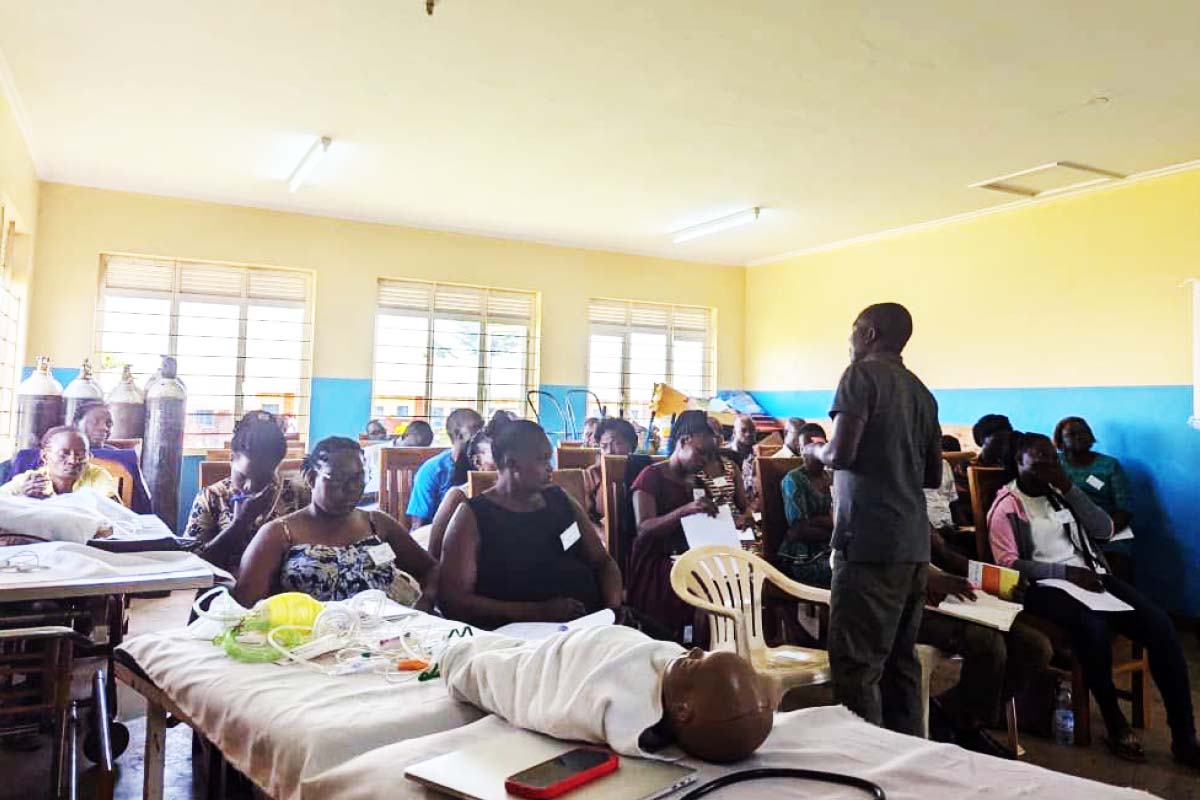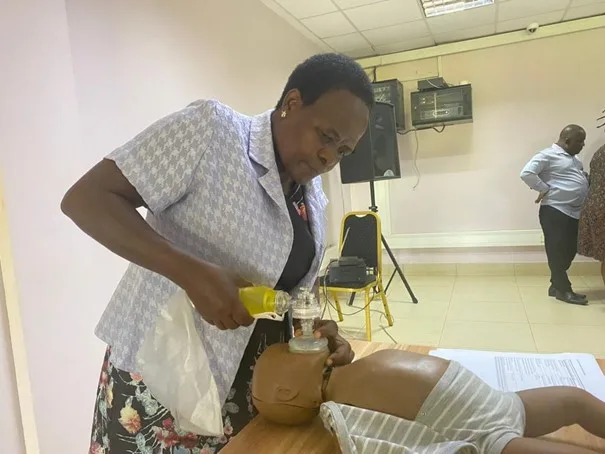
BHF prioritizes voluntary family planning in urban areas
By Elizabeth Namara
Busoga Health Forum (BHF) in partnership with Makerere University School of Public Health (MakSPH) has launched a project aimed at boosting voluntary family planning in Jinja city and Iganga municipality.
This three-year initiative funded by the John Templeton Foundation is code named the Urban Thrive Project (UTP) and aims at improving access to sexual and reproductive care, family planning and education.
The project recently held inception meetings that took place on 26 -27 August 2021 in Iganga Municipality and Jinja City respectively.
Participants in the inception meetings included Town Clerks, Mayors, District Health Officers, Political Leaders, Health Workers and other Non-Governmental Organizations such as Reproductive Health Uganda, and community representatives among others.
Dr Peter Waiswa, an Associate Professor at Makerere University School of Public Health and the project lead also noted that Busoga’s health status is in dire situation.
“There is need to mobilize the community to get involved in health matters,” he stated.
The Head Health Department Iganga Municipality Mr. Joseph Mukasa appreciated Makerere University and Busoga Health Forum for the insightful and timely project.
Mr. Mukasa also noted that Covid-19 and its related control measures especially the lockdowns that made people stay at home may have had an impact on population increase. Mr. Mukasa called upon participants at meeting to embrace the project.
Mr. Shem Mutala, the Senior Clinical Officer Jinja City updated the participants on the current position of Jinja district as far as family planning is concerned. The teenage pregnancy rate was at 17%. Within the previous one year; most clients had accessed short-acting family planning methods which are rather considered less helpful as compared to the long acting reversible and permanent methods.
“Information and social behavioral change communication are going to be key,” he emphasized.
The number of people who have accessed information about family planning in HIV clinics was as follows:139 in March, 99 in April, 137 in May and 676 as of June 2021.
He noted that the most challenging time for family planning was the postpartum period. While it is better for mothers to start family planning right after childbirth, fewer mothers are interested in uptake of birth control measures in this critical period.
The other challenges stressed by Mr. Mutala included limitation on supplies especially running out of stock and leaders’ general neglect of family planning. “It is an under-funded priority.”
UTP will leverage BHF networks and resources to support activities such as stakeholder engagement. Some of the stakeholders and potential collaborating partners include Ministry of Health, urban authorities, policy makers, Reproductive Health Uganda, Regional Health Integration to Enhance Services in Eastern Central, and Marie Stopes Uganda, among others.
While closing the inception meetings, the Jinja Resident City Commissioner Mr. David Matovu emphasized the delicate nature of family planning in the area. “It rotates around all the other sectors. Health is central to the transformation agenda; universal primary education cannot survive unless the children are healthy,” the RCC noted, pledging full support to the new project.





